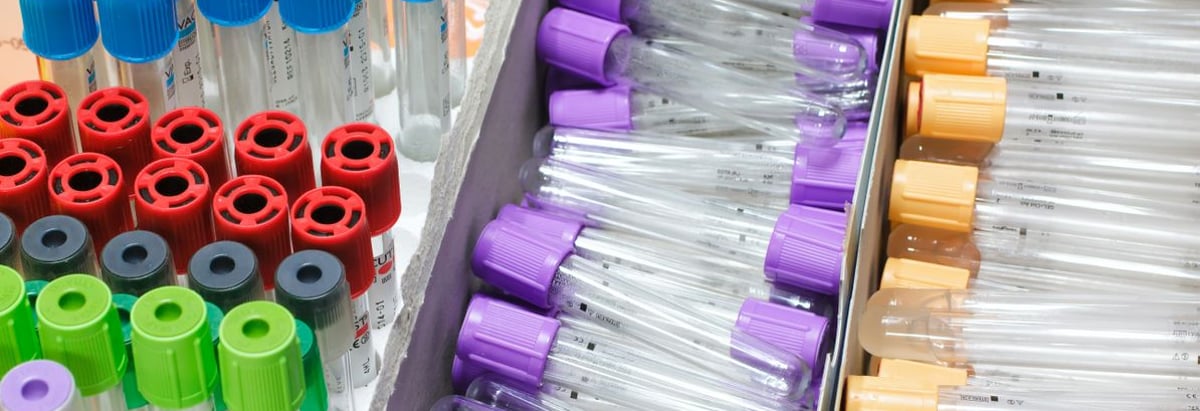Stock Analysis
- South Korea
- /
- Medical Equipment
- /
- KOSE:A137310
Would SD Biosensor (KRX:137310) Be Better Off With Less Debt?

The external fund manager backed by Berkshire Hathaway's Charlie Munger, Li Lu, makes no bones about it when he says 'The biggest investment risk is not the volatility of prices, but whether you will suffer a permanent loss of capital.' So it seems the smart money knows that debt - which is usually involved in bankruptcies - is a very important factor, when you assess how risky a company is. As with many other companies SD Biosensor, Inc (KRX:137310) makes use of debt. But is this debt a concern to shareholders?
When Is Debt Dangerous?
Debt is a tool to help businesses grow, but if a business is incapable of paying off its lenders, then it exists at their mercy. Part and parcel of capitalism is the process of 'creative destruction' where failed businesses are mercilessly liquidated by their bankers. However, a more usual (but still expensive) situation is where a company must dilute shareholders at a cheap share price simply to get debt under control. Of course, the upside of debt is that it often represents cheap capital, especially when it replaces dilution in a company with the ability to reinvest at high rates of return. When we examine debt levels, we first consider both cash and debt levels, together.
View our latest analysis for SD Biosensor
How Much Debt Does SD Biosensor Carry?
You can click the graphic below for the historical numbers, but it shows that SD Biosensor had ₩496.1b of debt in March 2024, down from ₩675.4b, one year before. However, it does have ₩430.8b in cash offsetting this, leading to net debt of about ₩65.3b.
How Healthy Is SD Biosensor's Balance Sheet?
The latest balance sheet data shows that SD Biosensor had liabilities of ₩183.2b due within a year, and liabilities of ₩669.2b falling due after that. On the other hand, it had cash of ₩430.8b and ₩147.4b worth of receivables due within a year. So its liabilities outweigh the sum of its cash and (near-term) receivables by ₩274.2b.
Since publicly traded SD Biosensor shares are worth a total of ₩1.49t, it seems unlikely that this level of liabilities would be a major threat. Having said that, it's clear that we should continue to monitor its balance sheet, lest it change for the worse. The balance sheet is clearly the area to focus on when you are analysing debt. But you can't view debt in total isolation; since SD Biosensor will need earnings to service that debt. So if you're keen to discover more about its earnings, it might be worth checking out this graph of its long term earnings trend.
Over 12 months, SD Biosensor made a loss at the EBIT level, and saw its revenue drop to ₩650b, which is a fall of 62%. That makes us nervous, to say the least.
Caveat Emptor
Not only did SD Biosensor's revenue slip over the last twelve months, but it also produced negative earnings before interest and tax (EBIT). To be specific the EBIT loss came in at ₩135b. When we look at that and recall the liabilities on its balance sheet, relative to cash, it seems unwise to us for the company to have any debt. So we think its balance sheet is a little strained, though not beyond repair. However, it doesn't help that it burned through ₩281b of cash over the last year. So in short it's a really risky stock. When analysing debt levels, the balance sheet is the obvious place to start. But ultimately, every company can contain risks that exist outside of the balance sheet. Be aware that SD Biosensor is showing 3 warning signs in our investment analysis , and 1 of those is concerning...
If, after all that, you're more interested in a fast growing company with a rock-solid balance sheet, then check out our list of net cash growth stocks without delay.
New: Manage All Your Stock Portfolios in One Place
We've created the ultimate portfolio companion for stock investors, and it's free.
• Connect an unlimited number of Portfolios and see your total in one currency
• Be alerted to new Warning Signs or Risks via email or mobile
• Track the Fair Value of your stocks
Have feedback on this article? Concerned about the content? Get in touch with us directly. Alternatively, email editorial-team (at) simplywallst.com.
This article by Simply Wall St is general in nature. We provide commentary based on historical data and analyst forecasts only using an unbiased methodology and our articles are not intended to be financial advice. It does not constitute a recommendation to buy or sell any stock, and does not take account of your objectives, or your financial situation. We aim to bring you long-term focused analysis driven by fundamental data. Note that our analysis may not factor in the latest price-sensitive company announcements or qualitative material. Simply Wall St has no position in any stocks mentioned.
About KOSE:A137310
SD Biosensor
An in-vitro diagnostic company, provides point-of-care diagnostic solutions in South Korea and internationally.


